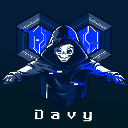Claude.ai
- Testing
https://claude.ai/ - free version.
- Registering (in Chrome 109, Firefox 115 it fell into a waiting loop and did not proceed to the next step). Provide your email and phone number.
- I ask the AI if it knows MicroScript2.0 or MicroStudio. "Claude.ai" does not know MicroScript2.0.
- In the query, I provided the library code and how to modify this library (add a class).
After providing the sample code, almost correct source code is generated.
It only generated incorrect calls to mathematical functions such as Math.abs() and conditions such as " dx > 0 ? 1 : -1". But it's easy to fix.
- New toy for testing :-)
What do you think about doing something like the example MicroScript2.0 code for AI that you provide as an example of syntax? It would have all possible syntax structures and references to the standard API.
Seems like a waste of time to me.
I'd rather code it myself tbh.
And I will most certainly not provide my phone number.
i actually used chat gpt to create quick converted c++ classes to javascript. Initially it failed a bit because i had todo it in multiple steps because of limits. So i did class by class for blockdude and it made a bit of a mess of it sometimes it had variable names starting with uppercase letter and sometimes not usually it happend if one class used another class (that i had to be generated in seperate step).
Now this did help me a bit, as for some things i was unsure how to convert the c++ to javascript and it's also tedious doing this conversion manually (not sure of how many times it saved me from writing "this."), so i was happy that it generated more or less the skeleton of it all and i had to fix things here and there. It does not help that microstudio ide shows wrong line numbers (somehow in certain cases it always refered to line 34 in case of syntax errors) but once i knew what to look for it was easily fixed. I must say this proces was probably faster than doing the tedious conversion work myself, but you still need to check and test everything as it does create faults.
Currently i'm working on porting a much simpler game and there i had more luck because each class was seperate and it did almost not make any mistakes at all. I did had to notify chatgpt about javascript not needing null chars for strings and it corrected the mistake and so.
I think generally depending on the task it can help. For example converting classes as i did or certain tedious repetitive (syntactical) tasks you have to do on a bunch lines but using it for generating something completely from scratch is a no go imo.
I've also used chatgpt in the past to give me quick example python code on how to access some element in a website or a json element in a big json file using a certain library in bash. I think in such cases its also handy if it can provide you a quick template (which you refine) so you get the idea, it saves you time of scourging through complete docs if only thing you need is a small part of the lib and you had never used the lib before.
But for allmost all tasks you will still need to be able to program things, debug things and understand mistakes so i'm not affraid of losing my job as a developper soon to it, it just makes too many mistakes and other than small example code it is not able (yet) to produce anything working without faults although the faults can be corrected the question then becomes how much time you want to spend debugging these faults and if doing it manually would have saved more time or not or produced less such faults. I converted code from one language to other languages manually many times manually already and in almost all cases i also had bugs i had to correct just not sure if it was less bugs than what chatgpt would do in conversions :)
Small Update: I looked into google's gemini, and I am positively surprised tbh. It's friendly, it can praise you in certain situations, and on an very obscure algorithm I tested it on (converting [3,32] to 800), it successfully provided a working example on the first attempt.
Also it is not as cheesy as ChatGPT.



